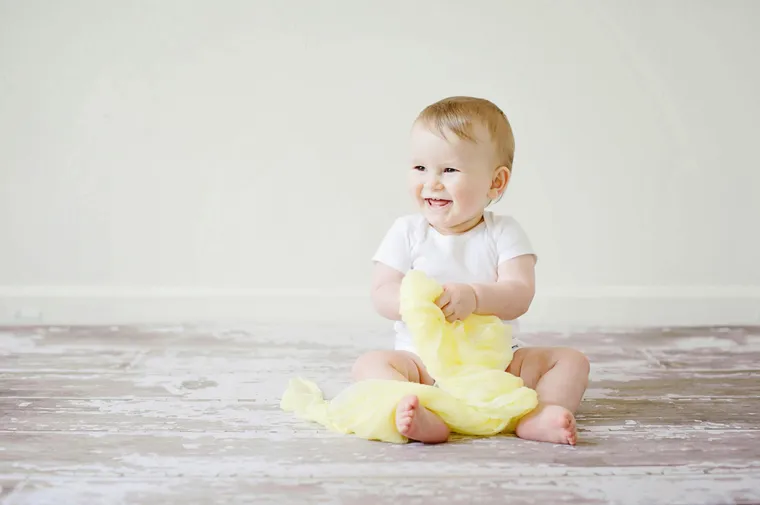Whether you're searching for eczema treatment for a 7-month-old, or wondering why does my 6-month-old have eczema, this guide covers what you need to know about symptoms, causes, and treatment options.
What Does Baby Eczema Look Like?
Eczema often appears as patches of red, dry, or scaly skin. In babies, it commonly shows up on the cheeks, forehead, and scalp, though it can also spread to the arms, legs, and torso. If you notice rough, inflamed skin on your 3-month-old, 5-month-old, or 6-month-old baby, eczema may be the culprit.
Why Does My 6-Month-Old Have Eczema?
The exact cause of eczema is not fully understood, but it’s believed to be linked to both genetics and environmental factors. Babies with a family history of eczema, asthma, or allergies are more likely to develop it. Triggers such as harsh soaps, dry air, certain fabrics, or allergens can worsen symptoms. If you’re asking why does my 6-month-old have eczema, it may be a combination of sensitive skin and exposure to irritants.
When Does Baby Eczema Start?
Eczema can begin at any age, but it most commonly starts between 2 to 6 months of age. For instance, many parents report early signs of eczema in a 3-month-old, and it can continue or flare up again by the time the child is 6 months or 7 months old.
Eczema Treatment for 3–7 Month Old Babies
If your baby is 3, 5, 6, or 7 months old, eczema treatment will primarily focus on managing symptoms and avoiding triggers. Here are the most commonly recommended steps:
1. Use a Gentle Cleanser
Look for fragrance-free and hypoallergenic baby cleansers. Avoid bubble baths and anything with strong scents, which can strip the skin of its natural oils.
2. Moisturize Frequently
One of the most important steps in treating baby eczema is moisturizing—several times a day. After bathing, pat your baby's skin dry and immediately apply a thick moisturizer.
3. Choose a Good Baby Eczema Cream
When looking for baby eczema products, many dermatologists recommend creams or ointments over lotions. Products like Aveeno Baby Eczema Therapy Moisturizing Cream contain colloidal oatmeal, which can soothe irritated skin. This Aveeno baby eczema formula is accepted by the National Eczema Association and is designed specifically for infants.
Other good creams for baby eczema include:
- CeraVe Baby Moisturizing Cream
- Eucerin Baby Eczema Relief Body Cream
- Vanicream Moisturizing Cream
4. Avoid Irritants
Dress your baby in soft, breathable fabrics like cotton. Avoid wool or synthetic materials that could irritate the skin. Use a gentle, fragrance-free laundry detergent.
5. Control the Environment
Dry air can worsen eczema, so consider using a cool-mist humidifier in your baby’s room. Also, be mindful of heat and sweat, which can trigger flare-ups.
6. Talk to Your Pediatrician
If over-the-counter options aren’t helping, your doctor might prescribe a mild steroid cream or other treatments safe for infants. Always consult your pediatrician before applying any medicated cream, especially when treating eczema in a 3-month-old or younger.
Best Baby Eczema Cream: What to Look For
When choosing a baby eczema cream, here are some key ingredients and attributes to look for:
- Colloidal Oatmeal: Helps soothe itchy and inflamed skin (found in Aveeno Baby Eczema products).
- Ceramides: Help restore the skin barrier (found in CeraVe Baby).
- Fragrance-Free: Fragrances can cause irritation.
- Thick Texture: Creams and ointments are more effective than lotions for locking in moisture.
Always patch test a small area first to ensure your baby doesn't react to a new product.
When to Seek Medical Attention
See your pediatrician if:
- Your baby’s eczema gets worse or becomes infected (look for yellow crusting or oozing).
- The skin is not responding to over-the-counter treatments.
- Your baby seems extremely uncomfortable or is losing sleep due to itching.
Final Thoughts
Dealing with baby eczema, especially in a 6-month-old or 7-month-old, can be stressful. But with the right care, most babies respond well to treatment. Consistent moisturizing, avoiding triggers, and using trusted products like Aveeno Baby Eczema Cream can go a long way in managing symptoms and keeping your baby comfortable.
References
- American Academy of Dermatology. “Eczema: Tips for Managing.”
https://www.aad.org/public/diseases/eczema/eczema-resource-center - National Eczema Association. “Eczema in Infants.”
https://nationaleczema.org/eczema/types-of-eczema/atopic-dermatitis/babies/ - Mayo Clinic. “Baby Eczema: Causes, Symptoms and Treatments.”
https://www.mayoclinic.org/diseases-conditions/eczema-children - Aveeno Baby Eczema Therapy Moisturizing Cream (Product Info)
https://www.aveeno.com/products/baby-eczema-therapy-moisturizing-cream

